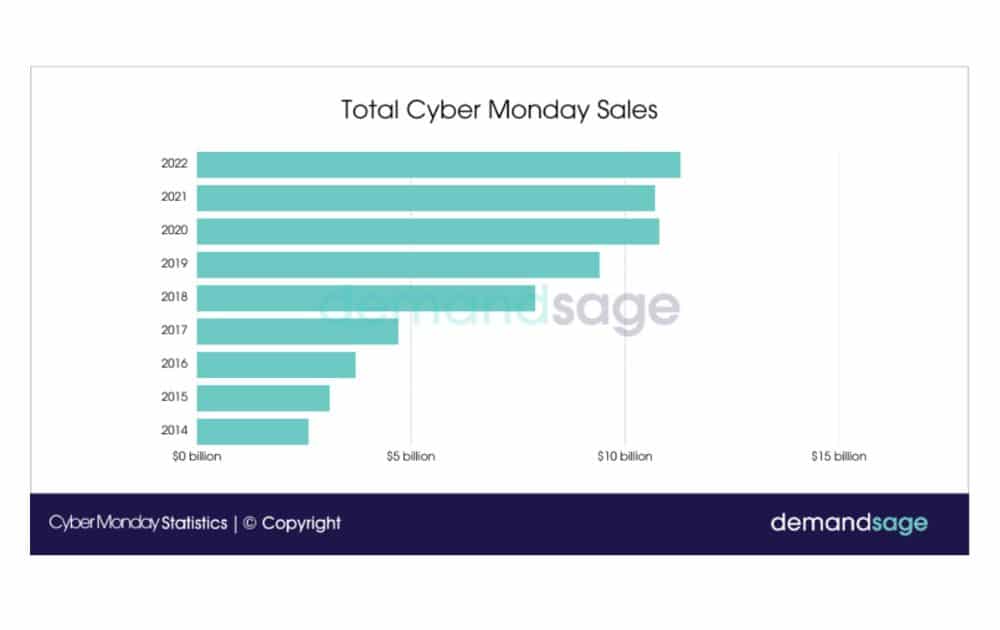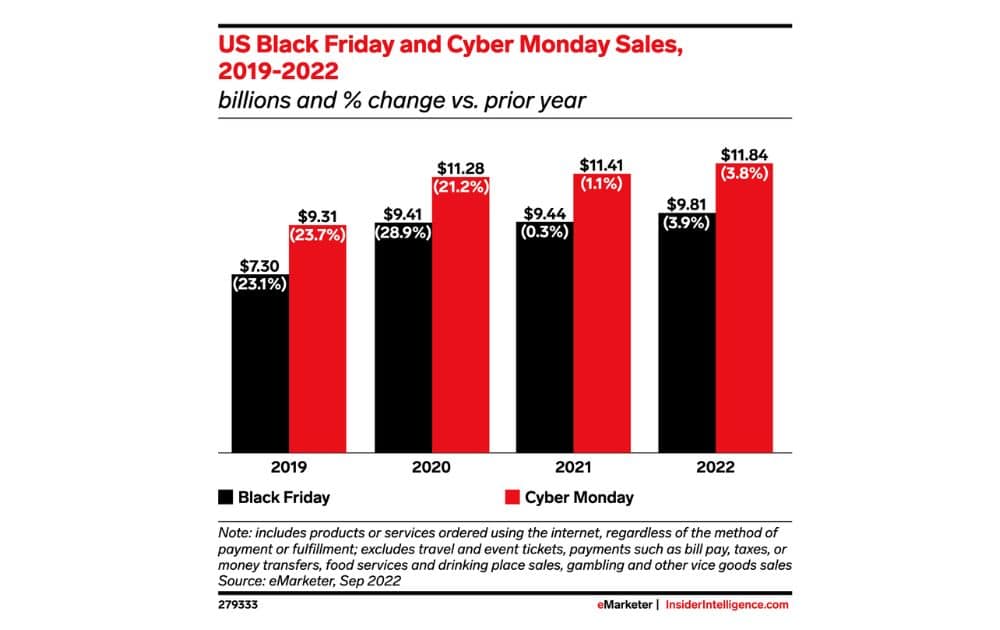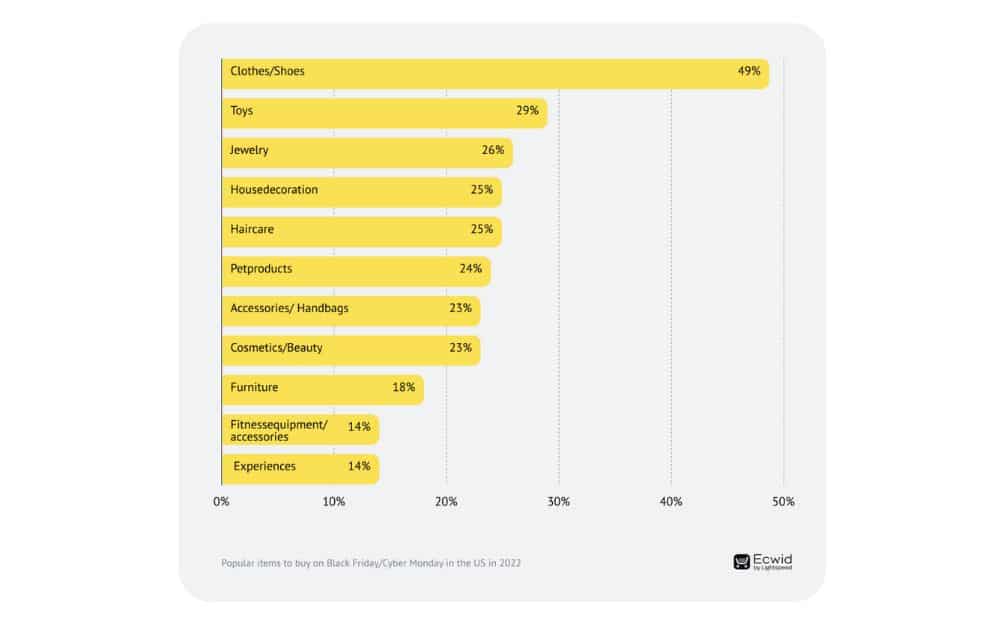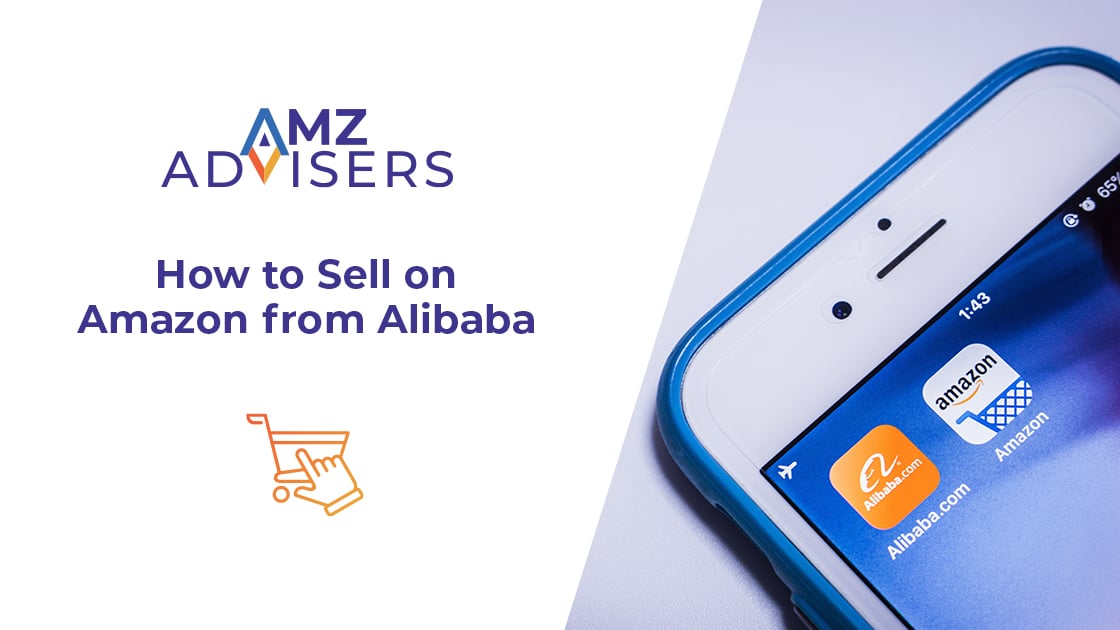Cyber Monday might already be stealing Black Friday’s Spotlight in the eCommerce arena, according to Business Insider. In fact Savvy sellers know it’s the golden ticket to skyrocketing sales.
In 2022, Adobe Analytics data stated that Cyber Monday raked in $11.3 billion in online spending, setting a new ecommerce record.

Moreover, Demand Sage stats reveal that 77 million people shopped online during Cyber Monday 2022, spending $12.8 million every minute during peak hours.
But just how powerful is this sales day? And more importantly, how can sellers make the most out of this opportunity?
What is Cyber Monday?
Black Friday is the big date for retail, but Cyber Monday is the Super Bowl for eCommerce brands.
Cyber Monday is a marketing term for the Monday following the US Thanksgiving holiday. It was created by retailers to encourage people to shop online. It falls after the traditional Black Friday sales event, which is focused on in-store shopping.
Cyber Monday 2023 falls on November 27.
When was the first Cyber Monday?
Before the term was coined, retailers noticed a spike in online sales on the Monday following Thanksgiving, as mentioned in a 2006 CNN report.
Many customers didn’t have access to high-speed internet at home at that time. So, they shopped for deals online when they returned to their workplace after the holiday weekend.
The term was coined by National Retail Federation Senior Vice President Ellen Davis and Shop.org Executive Director Scott Silverman. In November 2005, they issued a press release titled “Cyber Monday Quickly Becoming One of the Biggest Online Shopping Days of the Year.”

Over the years, Cyber Monday has grown in popularity and often records some of the highest online sales figures for retailers. It’s now recognized globally and is considered one of the biggest online shopping days of the year.
Every year, many shoppers search online for Walmart deals, Best Buy discounts, and everything else in between.
Is Cyber Monday or Black Friday More Popular?
The popularity of Cyber Monday and Black Friday varies based on several factors, including the following:
Sales Volume
Data from eMarketer highlights that, in recent years, Cyber Monday has often surpassed Black Friday in terms of online sales. As online shopping has become more prevalent, many consumers prefer the convenience of shopping from home or work, leading to significant online sales during Cyber Monday.
Traditionally, Black Friday marks the beginning of the holiday shopping season. Many consumers take advantage of the day off to visit physical stores for doorbuster deals.

Global Reach
Cyber Monday deals originated in the US but gained global traction, especially in countries with a strong eCommerce presence.
Black Friday’s popularity has also spread to other countries, with many adopting the shopping holiday, even if they don’t celebrate Thanksgiving.
Consumer Behavior
The rise of digital technology, fast internet speed and mobile shopping apps have made online shopping more accessible and convenient. This has boosted the popularity of Cyber Monday, especially among tech-savvy consumers.
Many consumers enjoy the experience of in-store shopping on Black Friday, seeing it as a tradition or a social event.
Duration
While Cyber Monday is a one-day event, many online retailers extend their deals to create a “Cyber Week.”
Similarly, many retailers now start their Black Friday sales earlier in the week or even on Thanksgiving Day.
The “more popular” day can vary based on individual preferences, shopping habits, and regional trends. However, in terms of online sales, Cyber Monday often has the edge.
How Can Sellers Prepare for Cyber Monday?
Here are a few tips and best practices to help you prepare for Cyber Monday sales.
Optimize Product Listings
Ensure your product titles, descriptions, and images are clear and high-quality before Cyber Monday.
Use relevant keywords to improve search visibility within Amazon’s platform but avoid keyword stuffing; instead, focus on relevance and search intent.
Best practices:
- Include the main keyword or brand name in the title and mention essential features such as size, color, or quantity.
- Use bullet points to highlight key features and incorporate relevant keywords naturally within the description.
- Use high-resolution images that clearly showcase the product; include multiple angles and close-ups to highlight specific features. If relevant, show the product in use to provide context.
- Conduct thorough keyword research using tools like Amazon’s Brand Analytics or third-party platforms.
Related content: Copywriting for Amazon
Competitive Pricing
Many shoppers will be looking for the best deals and good seller promotions. Therefore, competitive pricing is a critical strategy during this season.
Even with a slight reduction in profit margins, competitive pricing can lead to increased sales volume, compensating for the reduced margin.
Best practices:
- Regularly monitor the prices of similar products on Amazon. Various tools can provide historical price data, helping sellers understand pricing trends.
- Prices on Amazon can fluctuate frequently. Instead of manually adjusting prices, consider using dynamic pricing tools that automatically adjust your product’s price based on predefined criteria.
- Before setting a competitive price, ensure you have a clear understanding of your costs, including manufacturing, shipping, Amazon fees, and other overheads. This ensures you maintain profitability.
Manage Inventory
Holiday sales on Amazon see a significant surge in online shopping. Running out of stock means missing out on potential sales and revenue.
That said, having products in stock is crucial to ensure timely delivery for the Cyber Monday sale, leading to positive customer reviews and repeat business.
Best practices:
- Use Amazon Seller Central to monitor inventory levels regularly. Set up notifications to alert you when stock levels drop below a certain threshold.
- Always maintain a “safety” stock level. This acts as a buffer against unexpected surges in demand or disruptions in logistics optimization.
- If possible, source products from multiple suppliers. This reduces dependency on a single supplier and ensures a steady flow of inventory.
- Analyze previous sales data, especially from past Q4 selling events, to forecast demand. This will help determine how much inventory to stock up on. You can also check out stats on what shoppers plan to buy in Black Friday and Cyber Monday sales, such as this Ecwid data from 2022.

Bundle Products
Product bundling refers to the practice of grouping multiple products together as a single package offering. This strategy, common among Amazon Cyber Monday deals, can be seen in various forms, such as “Buy One Get One Free” or “Three for the Price of Two.”
By encouraging customers to purchase a bundle instead of a single product, sellers can increase the total purchase amount, thereby boosting the Average Order value.
Best practices:
- Ensure that the products in the bundle are complementary and relevant to each other. For example, a camera bundled with a memory card and a protective case makes sense.
- The bundle’s price should offer perceived value. If the bundled price isn’t significantly lower than buying the items separately, customers might not see the benefit.
- Highlight the benefits and savings of the bundle in product descriptions and promotional materials.
Advertise Your Cyber Monday Deals
Advertising your Cyber Monday sale is crucial to maximize visibility and sales. Depending on your audience, it may require a multi-faceted approach and tailored marketing, leveraging both Amazon’s internal advertising tools and external channels.
Best practices:
- If using Amazon Sponsored Products, adjust your ad copy to emphasize Cyber Monday discounts or exclusive deals. You may also want to allocate a larger budget to ensure your products remain visible throughout the day.
- For Amazon Sponsored Brands ad placement, highlight your brand’s unique selling points and direct traffic to custom landing pages that showcase your Cyber Monday deals and top-selling products.
- If using social media platforms like Facebook or Instagram, use eye-catching graphics and videos to highlight your Amazon Cyber Monday deals.
Optimize for Mobile
Optimizing for mobile has become a necessity in ecommerce. With a significant portion of shoppers browsing and buying on mobile devices, Amazon sellers must ensure their promotions, listings, and external marketing efforts are tailored for the mobile experience.
Best practices:
- When creating ads for platforms like Facebook or Instagram, ensure they’re optimized for mobile viewing. This includes using mobile-friendly formats like Stories or Carousel ads.
- Mobile users often zoom in on images, so clarity is essential. Ensure product images are clear and high-resolution.
- Mobile users prefer vertical scrolling. Organize content in a vertical flow to enhance the mobile shopping experience.
Related content: Page Speed & SEO
The Lowdown
Cyber Monday isn’t just about the deals; it’s about the experience.
In an age where convenience is king, brands aren’t just selling products; they’re engaging with consumers and understanding their preferences.
At the end of the day, sellers must always prioritize customer satisfaction over short-term sales spikes. Remember, a happy customer today can become a loyal advocate tomorrow.
Author


Carla Bauto Deña is a journalist and content writer producing stories for traditional and digital media. She believes in empowering small businesses with the help of innovative solutions, such as e-commerce, digital marketing, and data analytics.



